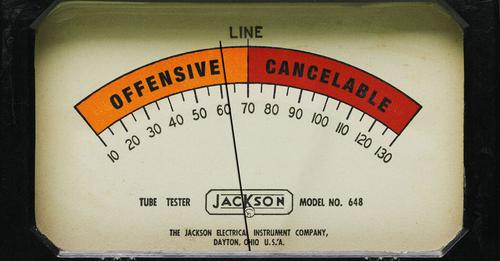
John McWhorter wrote an excellent column that appeared in today's NY Times. I highly recommend reading it:
https://www.nytimes.com/2022/12/20/opinion/purdue-chancellor-racist-joke.html
My one quibble with McWhorter is about the use of the word "hurtful." It's a tricky word. In this case, McWhorter lifted it from an apology issued by the chancellor of Purdue University Northwest, Thomas L. Keon, who wrote that "We are all human. I made a mistake, and I assure you I did not intend to be hurtful...."
McWhorter comments that "One hopes he will come to fully understand why the 'joke' was both lame and hurtful, if he has not already."
What makes "hurtful" an ambiguous term is that, in discussing its use, one can easily slide over questions of intention and responsibility: If I feel hurt by a comment, was that comment hurtful? If the comment is directed at two people, one of whom feels hurt by the comment while the other one does not, is the comment hurtful?
Merriam-Webster.com defines the adjective “hurtful” as
“causing injury, detriment, or suffering: DAMAGING."
Google defines it as “causing distress to someone’s feelings.” E.g., “his hurtful remarks.”
The OED offers a more comprehensive view, defining "hurtful" as "Having the quality of causing hurt or injury; harmful, injurious, detrimental, prejudicial, pernicious, mischievous, noxious, noisome."
So, perhaps another way, or even a better way, of saying that a comment was "hurtful," while taking responsibility for one's own emotional reaction (or response) to the comment, is to say that, "When you said that, I felt hurt." That sounds distinctly different from accusing someone of making a "hurtful" remark.